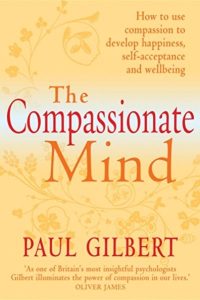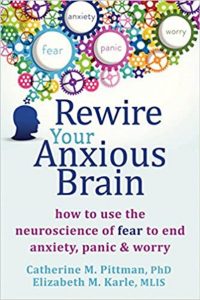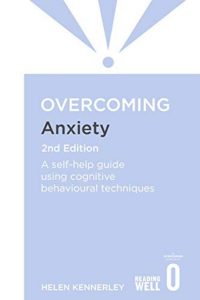Can anxiety cause chest pain?
So, can anxiety cause chest pain?
Can anxiety cause chest pain? This is a very commonly asked question.
The answer is short and simple – yes. But there is more to it than one little sentence.
In order to understand the very question, we need to go back to prehistoric times and early humans…
Stress in real terms is physical arousal (yes, you heard that correctly) which can be traced back to the stone age as a survival mechanism. Today, however, stress seems to be exaggerated.
What was once a survival mechanism and reaction to danger, today is being associated with mental illness which claims the lives of many people.
How so?
In the past stress could get our ancestors out of danger and save their lives. Today, stress causes problems rather than escape. People see anxiety as something terrible as opposed to what it really is – a state of arousal or excitement.
Stress has been linked to all the leading causes of death such as heart diseases, cancer, or suicide. Modern people took anxiety to another level.
In the past, humans had less to worry about. Sure, their life was shorter, unexpected, and more dangerous but all we had to do was survive. Today, we are being bombarded by so much information, that we can barely grasp.
In addition to survival, we have the current economy markets, sudden unemployment, financial problems, marriage breakups, or a loss of a loved one.
But unlike prehistoric times, where we had no time to think but act, we have more time to think about things because there isn’t any immediate danger, such as a tiger nearby, and so overthinking leads people to chronic stress, and that leads to the lower immune system, which in result affects our physical health.
Can anxiety cause chest pain? Sure, can!
In the areas of work, family, relationships, finances, or health, we are always open to stressors. As I mentioned above, there is a clear link between thoughts and physical responses to them.
The stress response may be set off by physical damage, such as infection or injury, or by emotional trauma, and the latter can include our thoughts.
Feeling worried, fearful, or simply nervous from time to time is quite normal for most of us.
These are typical reactions to moments in everyday life but some people experience anxiety more frequently. My wife lives in constant fear of what tomorrow is going to bring.
She has her reasons, she experienced a lot of bad things in life. Since childhood, my wife went through traumatic events, which undoubtedly shaped her anxious mind.
But in her adult years, M was injured on numerous occasions, attended 3 years of rehabilitation, discovered two ovarian cysts and today lives with endometriosis and constant acid reflux.
My wife is a prime example of someone who suffered enough in life to the point, she was mentally broken.
Symptoms can move beyond feelings of concern or worry about other physical reactions. Occasionally, these symptoms are mistakenly associated with other conditions.
As an example, chest pain is sometimes a symptom of anxiety. Often the result of a panic attack or heightened reaction, chest pain is a concern because of the possible connection to heart attacks and other heart conditions.
Story of my wife…
There was a period in the past when my wife M struggled with a constant feeling of anxiety leading to panic attacks which left her collapsed on the floor on a weekly basis. These crippling manifestations of anxiety slowly started to take over her life and her world began to shrink.
It all started about 5 years ago after she had sustained a neck and lower back injury that left her in so much pain she was unable to dance and had to give up the thing she loved.
She only had her office job to rely on for money and she wasn’t getting any exercise as she could hardly walk for long without getting severe pain. Her office job was also becoming more stressful and she felt like she had no enjoyment in life.
She also felt weak and vulnerable because she was in constant pain, and physiotherapy and osteopathy weren’t really working. She felt a failure, like her life was never going to get better and she would never dance again.
The first time she had a panic attack, I didn’t realize what was happening. I just remember her saying she felt strange on the platform at the train station and then saying she couldn’t breathe.
It felt like her heart was pounding at about 200 beats per minute and then she just sunk down out of my arms and onto the floor!
I thought she was having chest pain and that she was dying and I think she did too!
She came round after about 30 seconds but was violently shaking. It was a very frightening experience for me let alone her! The paramedics came and checked her over and took us to A & E, where a doctor confirmed that she had experienced a panic attack.
She went on to experience these attacks more and more frequently and each time she thought she was dying. She was terrified and I could see the fear in her eyes.
Each time she stepped onto an overcrowded platform or even worse, an overcrowded train, she would start to feel like she couldn’t breathe, then her heart and head would start pounding, and she would have a full-blown panic attack.
So she started to avoid crowded or noisy places, she stopped going on crowded transport, she stopped going to crowded shopping centers and going to the cinema or the theatre was out of the question, as she felt like there was no means of escape for her.
This caused problems with her getting to work and even took away the pleasure of going out for fun!
She was suffering daily from terrible restlessness and sleeplessness. This resulted in fatigue, trouble concentrating, irritability, and severe mood swings.
Eventually, things became so bad that she had to seek out the help of a professional…
M found a therapist who specialized in helping people overcome general anxiety panic attacks and with a lot of work on her part, she started to take control and get at least some of her life back.
To add to this, at the time she had also started to suffer from symptoms of endometriosis. She was suffering from heavy, painful periods, she was anaemic and she was suffering from hormone imbalance, which was also contributing to her anxiety.
At the time we were both unaware of this, but 5 years later we learned that endometriosis often causes women to suffer from extreme anxiety and depression due to the symptoms of the disease.
So, we are sure that this was also a contributing factor to the severe anxiety and panic attacks she was experiencing back then.
M still has light feelings of anxiety now and then today but it’s very manageable for her. She has learned her triggers and avoids them at all costs. Those that she cannot manage to avoid, she’s learned simply not to care.
I notice that when she begins to feel anxious, M adjusts her lifestyle and cuts out habits that trigger the anxiety.
There are so many more triggers and it would be difficult to point out them all but every one of you who suffers from anxiety has their own triggers. You need to look into your daily routine and find, what makes you feel anxious in the first place.
Grab a notebook, write a journal, whatever you fancy but take notes of them all because it will be helpful for you to identify the triggers after a few months, years, or even decades.

Witnessing her anxiety…
It was painful for me as her husband to witness how severe M’s anxiety had become. The most difficult part for me was her restlessness and constant waking at night. I had broken sleep patterns and worried about her in the day when I was at work. This all made me feel very tired a lot of the time.
However difficult it was for me, I encouraged M to wake me up whenever she had an anxiety attack because I knew I could still deal better with the lack of sleep than my wife could at the time.
It was also extremely comforting for her while she was going through such an awful experience. She felt my love, she felt wanted, supported, and cared for. It definitely helped her to combat her anxiety attacks much easier than when I wasn’t around.
I usually sat by her side, hugged her tightly saying that the attack is going to last 15-20 minutes and then everything is going to be ok.
It always took precisely this long to subside. I offered to turn the telly on, which helped M distract her mind from these scary episodes, and the simple fact that I was there, meant everything to M.
Panic attacks are truly awful things to experience or watch someone you love experience. They have a crippling effect on people and drastically affect people’s lives when they get out of control. Symptoms of panic attacks are as follows:
- “Racing heart”
- Feeling weak, faint, or dizzy
- Tingling, numbness, or pins and needles sensations in the body
- Sense of terror, or impending doom or death
- Feeling sweaty or having chills
- Chest pains
- Nausea
- Breathing difficulties
- Feeling a loss of control
- Shaking
It is understandable that after suffering this kind of attack. The sufferer worries more about having another one and will try to avoid it at all costs, but my wife had to learn to ride through it, sometimes with my help but sometimes on her own, and the more she did it the easier it became.
As a supporter of my wife suffering from anxiety, I found myself in the role of a compromiser, protector, and comforter. I didn’t mind that at all.
To care and protect comes naturally to me. I was brought up in a very caring family and that made me the person I am today.
Besides, I work in healthcare, the job is very pleasant. M is usually very independent, but the anxiety had changed her and she was in real need of support.
Supporters of people who suffer anxiety might have to bear the brunt of extra responsibilities and at first, make accommodations to avoid certain places or activities that trigger their partner’s anxiety. This can put a lot of strain on their relationship.
As a husband to someone with anxiety, I have experienced various emotions around the limits that were imposed on me at the time, but I never allowed myself to let them get a hold of me. I sucked it up and got on with it like a man.
In a situation like this, you might find yourself feeling angry, frustrated, sad, and even disappointed, that your dreams for what the relationship was going to be, have been limited by anxiety.
But the more I educated myself and understood what my wife was going through, the easier it was for me to accept that we might be going through hard times now, but with my support, she could beat it and life would be better again.
I would strongly recommend that you read some very helpful books, which helped us both understand anxiety in more depth…
My wife tried to grasp as much support as she could, all in search of a solution, to help herself, and to answer questions she had.
She began by reading a lot of books. I have to agree, these books are very helpful in helping you understand your anxiety and depression, and helping you get out of the cycle. You can access them by clicking on each one below. Allow me to list them for you:
My wife has read this book in a jiffy! It helped her during her dark times to find compassion and love for herself. For somebody like M, who suffered from severe depression, I noticed that the harshest critic of her was herself. It is never helpful to be told to pull ourselves together by others but saying it to ourselves leads us in only one direction – into a terrible despair.
I listed this book because M also suffered from anxiety at that time, it helped her mindset and depression. An obsessing, ruminating, and dwelling on things may or may not happen, but this book makes it simple to understand, how to manage your fear. Your brain is a very powerful tool, and the more you work to change your mindset, the better you’re going to feel.
This is another book that my wife reached for during her depression because it offered my wife a self-help program, written by one of the leading authorities in CBT. M also suffered at the time with OCD. A whole range of anxieties and fears are explained, from panic attacks and phobias to obsessive-compulsive disorder and anxiety. That really helped her!
A whole range of anxieties and fears are explained, from panic attacks and phobias to obsessive-compulsive disorder (OCD) and generalized anxiety. That really helped her!
But if you are really desperate in trying to conquer your anxiety and you have no access to CBT quick enough, or it’s simply too expensive, I’d strongly recommend you something you can grab right here, today!
As a husband of a woman who went through extreme anxiety and panic attacks, I wanted to break the pattern of waiting in a long cue for Cognitive-Behavioural Therapy.
My wife waited for 9 long months! I want you to avoid the same problem. This is why I decided to create these lessons.
Sometimes I ended up making sacrifices because of my wife’s anxiety. Such as skipping my gym workouts, skipping going to the cinema or theatre, etc.
But it didn’t matter. What mattered to me was for M to feel safe and for her to be OK. It will always matter to me more than anything.
However, whilst my wife was in therapy we learned that making too many accommodations to relieve her anxiety was not actually helping the situation, as it was giving my wife zero motivation to overcome her anxiety!
Besides that, it sent her, the message, that there really was something to fear, which fueled M’s anxiety even more.
Today I wonder if I was making good decisions, trying to accommodate her fears on a daily basis, but it was extremely difficult for me to see her suffer. I love M to bits and any fear she had, naturally made me want to be there for her.
On the other hand, I needed to think of myself and focus on my own well-being. You see, you can’t help someone else if you cannot help yourself first.
“You see, you can’t help someone else if you cannot help yourself first” – Lucjan B.
It was very reassuring for me to know that her therapist had shown her some techniques to help calm herself down when I was not around and she had started to use these techniques and not rely on me having to be around when she was feeling anxious. Of course, sometimes it was just too difficult for her, but over time she grew used to coping with fighting her panic attacks alone.
I went back to the gym, which after Latin-ballroom dancing is my second big passion. I could relax and not think about anything but my workout. It was refreshing.
Whatever you do, you always need a break. Everyone has a breaking point and if you want to help someone else, you need to help yourself first!
I made the mistake of not thinking about my own well-being. If you do that, you are only going to get frustrated and tired, and that would help no one.
The best thing you can do in this kind of situation is to be supportive, encouraging, and loving. Try and encourage therapy with a CBT therapist, because when your loved one seeks help from a professional, things will be so much easier.
Having a loved one who struggles with anxiety can naturally become stressful for you. It can be challenging but educate yourself, set healthy boundaries, and take care of your own needs.
Before her therapy sessions, I always tried to encourage my wife to resist the temptation of worry, but no matter how much I tried to reason with her, my words didn’t help her.
I explained on numerous occasions that if she worried or not, the outcome was always the same because she could never influence something or someone, she had no control over.
Panic attacks are sometimes unpredictable and paralyze you so you cannot control your thoughts. The sufferer cannot process the information you when you are talking to them, because the symptoms are too severe and just overpower their senses. At least that’s what I noticed with my wife.
It’s tempting for people that are affected by anxiety to assume, that if they avoid something that makes them anxious, the anxiety won’t appear. However, while that might seem to make logical sense, this can actually produce a snowball effect.
If my wife stopped trying to go on the platform at the train station, she would never have gone to work, because eventually, the fear of crowds would grow so much, she wouldn’t be able to leave the house.

Witnessing her anxiety…
It wasn’t easy. We needed to think out of the box. We live in London. It’s a huge metropolis. If you want to get from A to B, it takes a long time.
We would get up and get on the bus to get to the train station, which usually takes 15 mins. After that, I would grab a coffee and her something decaf, and then we would go and wait for the train.
We usually take two separate trains since we work in different areas of London. I would stay with M until she got on her train and then continue my 1-hour journey.
When she was feeling extremely anxious, M used to worry about the crowded platform before she got on the bus. I remember her shaking her head left to right as if she was arguing with her own thoughts.
I knew she wasn’t OK. M was anxious about what was to come. Her fear used to increase inside the coffee shop. She had a few tears and I could see the fear growing in her eyes.
She used to tremble each time we walked down the platform and when people began to multiply, the rat race and craziness of people were unpredictable and I myself could understand why my wife felt anxious at times.
No matter how much I protected her with my body from people swarming around us, M’s heartbeat began to beat a hundred miles an hour and I could see her go. Each time it happened, M fainted.
Her panic attacks caused me to lose a lot of days of work. You see, at the time I didn’t know how to deal with her anxiety, and quite often I had to skip a day of work to take care of my wife. She feared the unknown. We didn’t know how to tackle the issue.
Once she was in therapy, we made a plan to take things one step at a time and make things easier at first. We found an alternative less busy route to work by bus for a while.
We needed to spend an extra half an hour traveling, which in addition to the existing time, was already extremely long but we needed to solve the problem and that seemed like the best solution.
It was. The bus wasn’t overcrowded. It took longer but it was safer for her.
Slowly after a few weeks, M decided that she would like to try the train again, but maybe go in earlier to work to stay with so it was at least quieter.
Then one weekend she decided to try and face her fear of a crowded train and we got on together. I could tell she was anxious and uncomfortable, but she managed to fight the feeling and distract her mind, and guess what… NO PANIC ATTACK!
She just felt a bit uncomfortable.
Later on, we managed to go to the cinema, the theatre, and a big shopping center (Westfield’s in Stratford) and she made it through without having a panic attack each time. Sometimes she still got anxious about having a seat at the cinema or theatre where she felt boxed in with no way out, but that was easy enough to accommodate.
It took months for her anxiety disorder to wear off but eventually, it disappeared.
She succeeded in fighting her fear of trains and train stations because she was given a choice with no pressure. M could choose to go to the train station knowing she could change her mind and get on the bus anytime it made her feel anxious and she could still get to work on time.
She knew that she could get off the train at the next stop if she felt she couldn’t deal with it, she knew she could have a seat near the aisle in the cinema or theatre, and she knew that at any time when she felt anxious in a big shopping she could just leave.
She knew all of these things deep down before her therapy, but somehow it didn’t register because the panic attack itself or the fear of having one just clouded her mind and ability to reason.
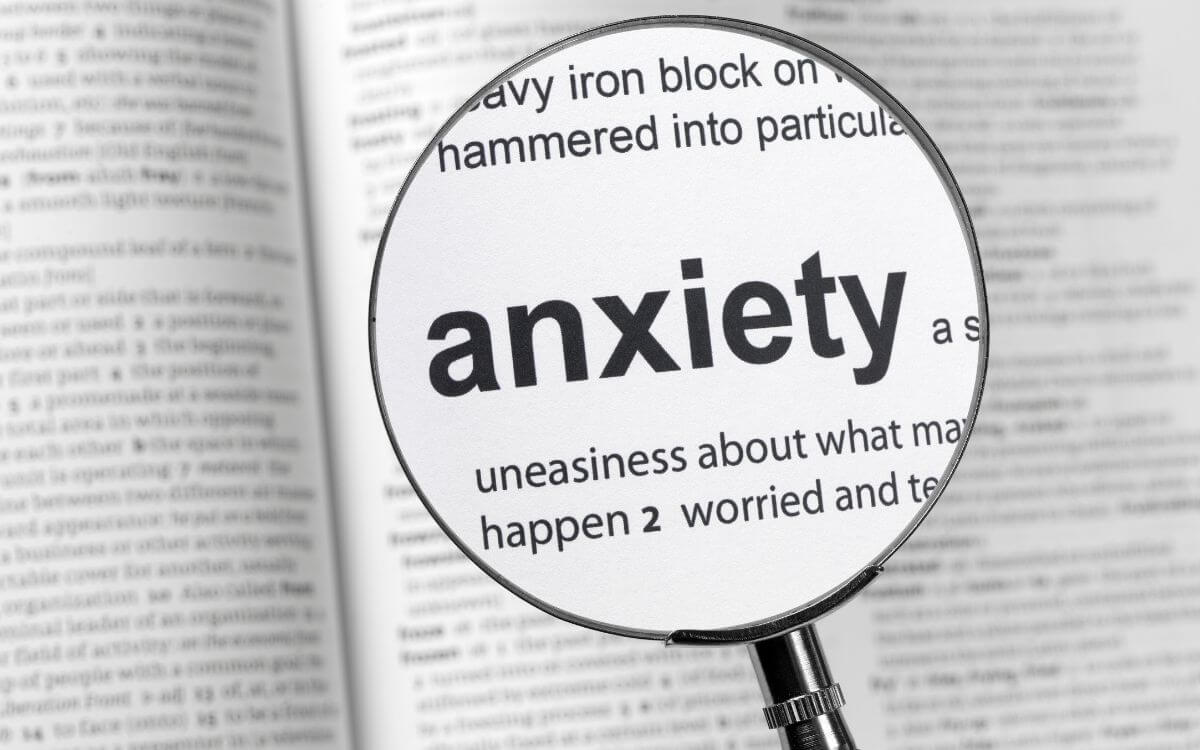
M still suffers from mild anxiety today, but she manages it well. She has learned about the reasons for her anxiety and the real triggers for her anxiety and depression, which believe it or not are anything to do with crowds, they go much deeper and just manifest that way.
M will be writing an article on general anxiety and panic attacks and she will go into more depth on how, with the help of a therapist, she identified the root causes of her extreme anxiety and managed to overcome it.
Anyone who suffers from anxiety has a trigger or a number of triggers, but you need to dig deep to find out what the root of your problem is before you can deal with them. You need to look into your daily routine, your feelings and thoughts and find what really makes you feel anxious in the first place. It is worth repeating…
Grab a notebook, write a journal, whatever you feel will help you consciously take note of your feelings at any particular time, but take note of it all because it will be helpful for you to identify what is really at the root of your anxiety.
The main things that I noticed my wife change, were habits in the way that she thought about things in general and how she dealt with problems and stressful situations. Her thinking patterns were originally quite negative when it came to how she felt about herself as a person and that itself prompted her anxiety.
She wasn’t aware at the time just how much of her thoughts about herself steamed back to her past experiences and childhood. She experienced a lot of trauma in her childhood and teenage years and this is when she learned to have a very low opinion of herself and almost felt unworthy of anything good.
She felt like she always needed to prove something in life and no matter how hard she worked nothing was ever good enough, even perfection was good enough! Making some big changes to her thinking patterns and also some lifestyle changes combined with CBT therapy, is what helped my wife win her battle against the extreme anxiety and panic attacks that she was suffering.
If someone you live with is experiencing anxiety, this could understandably distress you. You could be eager to rush to their side to offer support, the same as I did but you could remain unsure how exactly to do it.
Other contributing factors to anxiety.
Our feelings and emotions are very important, they affect not only our psychological being but also our physical well-being.
The cause of anxiety can vary. There are literally hundreds of reasons. Aside from past trauma, there are the current stresses of life, work, and relationships, and there are physical reasons as well, such as hormone imbalances, anaemia, chronic pain, and chronic diseases.
Other things that can increase anxiety levels are in our diet, such as alcohol, caffeine, and sugar, which all create a spike in adrenaline!
In my wife’s case, at the time of the onset of her extreme anxiety she had also started to suffer from symptoms of endometriosis. She was suffering from heavy, painful periods, she was anaemic and she was suffering from hormone imbalance, which was also contributing to her anxiety.
At the time we were both unaware of this, but 5 years later we learned that endometriosis often causes women to suffer from extreme anxiety and depression, due to the symptoms of the disease. So, we are sure that this was also a contributing factor to the severe anxiety and panic attacks she was experiencing back then.
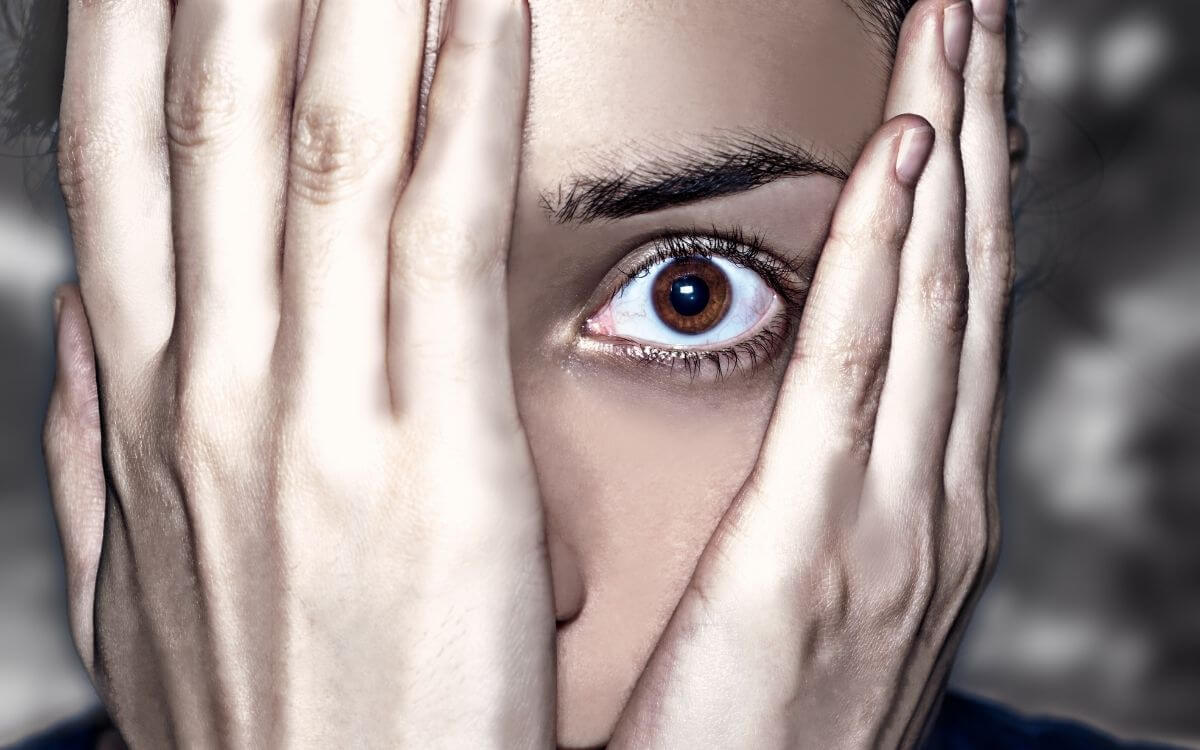
Some of these things are not necessarily the root trigger for your anxiety, but they can make your anxiety worse, and therefore make the fight against it harder.
- Hormone imbalances for example – hormones and anxiety are related in certain ways. When hormone levels are too high or too low, this can influence neurotransmitters in your brain, resulting in problems such as increased anxiety, even when there is no reason for it.There are three categories of hormones that may influence anxiety levels: stress hormones, sex hormones, and thyroid hormones. Learn more about these hormones, because they affect your body and mind.
Doing so will be the first step to managing the impact of hormones on your anxiety levels.
- Alcohol – anxiety, and alcohol are often connected. People drink to relax and reduce anxiety but in reality, chronic alcohol abuse can do the opposite, increasing your anxiety. Again, alcohol changes levels of serotonin and other neurotransmitters in your brain, which usually worsen your anxiety.
- Caffeine – dear coffee lovers, for those of you who don’t suffer from anxiety, caffeine may help with your concentration providing an energy boost, but it can also cause problems for those with a general anxiety disorder as it causes a spike in adrenaline.
- Too much sugar – much the same as the coffee it causes a spike in adrenaline and can also have an effect on raising oestrogen levels
In addition to receiving CBT therapy, my wife made a lot of lifestyle changes in order to combat her anxiety symptoms. She no longer drinks alcohol, she drinks only one coffee a day and eats minimal sugar, and just doing these things has made a huge difference to her anxiety levels.
My wife can clearly distinguish the difference between anxiety and chest pain. She knows it is not a heart attack.
Extreme anxiety can seem mysterious to people who have never or rarely experienced it, however, the above pointers can assist you in restoring mental health. You should never care what other people think. Never!
They are not your family, not your friends and they will never be in your life. Whenever you deal with mental health problems and find a lack of understanding from other people, ignore them. Remember, they don’t belong in your life.
It’s worth reassuring your loved one, that not everything they fear is actually unusual even for people who are relatively mentally healthy.
Fear of being judged is also understandable for most people. Worrying about asking someone for something, in case we are rejected or are made to feel stupid, is not particularly strange. It happens to all of us.
Be the calm in the other person’s “storm”, I was.
You can make your worrying loved one feel better if you have an accepting, rather than judgmental approach.
As a supporter, you need to accept that you don’t have all the answers.
However much you try to help relieve your loved one’s mental pain, don’t expect to be capable of relieving them of all their issues.
Try to encourage them to seek help from a qualified psychotherapist who specializes in CBT for a general anxiety disorder or panic disorder, and be there to support them through it, because it will be a tough ride, but they will come out the other side feeling stronger. In fact, you will both feel stronger!
Anyone who suffers from extreme anxiety will agree that it is very frightening. Having panic attacks and living in constant fear isn’t fun, but those of you who suffer from anxiety know, that they’re not the only ones who suffer because of it.
Family, friends, and significant others are also affected by the worry that is inside your head.
As a supporter, you’re going to get frustrated, confused and you might even wonder if all of this is even worth it.
I can tell you now. If you care about someone, it is worth it. You will become closer because that person is going to trust you, and your relationship will become even stronger.
Of course, M did the most difficult part, but without my support, it would be extremely difficult for her to overcome her fears.
I’m an optimist! I see the world through happy glasses. I don’t believe in unicorns, but I believe the power of your mind can either make or break you.
I hope you will find this article helpful. We have much more to write about the issue. Mental well-being matters to us!


About Me
Hi, I’m Lucjan! The reason why I decided to create this blog was my beautiful wife, who experienced a lot of pain in life, but also the lack of information about endometriosis and fibromyalgia for men…

